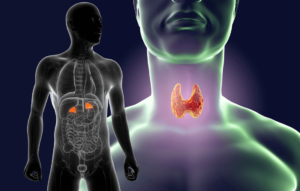Athletes are often celebrated as paragons of physical excellence and national pride, admired for their ability to break records, overcome challenges, and bring glory to their countries. However, beneath the surface of fame and accolades lies a stark reality: the immense mental strain that accompanies their pursuit of greatness. As the pressures of modern sports intensify, addressing athlete mental health has become as crucial as training for physical endurance.
The Invisible Weight of Athletic Excellence
Athletes face a unique constellation of stressors. The pressure to perform under the relentless scrutiny of coaches, teammates, fans, and media can often lead to feelings of inadequacy, burnout, and crippling self-doubt. Social media has amplified this scrutiny, making athletes vulnerable to public criticism and “keyboard warriors” who can erode confidence and mental stability.
High-profile cases, such as Simone Biles’ withdrawal from the 2020 Tokyo Olympics and Naomi Osaka’s temporary hiatus from professional tennis, underscore the importance of prioritizing mental well-being in competitive sports. These instances have sparked global conversations about the need for mental health resources tailored specifically to athletes.
The Scope of Mental Health Challenges in Sports
Recent studies highlight the prevalence of mental health challenges among elite athletes. Research published in The British Journal of Sports Medicine found that approximately 35% of elite athletes experience symptoms of anxiety or depression, compared to 20% in the general population. These numbers may be even higher among younger athletes, who often face the dual burden of academic pressures and athletic expectations.
Key Mental Health Concerns
Burnout: Prolonged exposure to intense training and competition schedules can lead to physical and emotional exhaustion, diminishing performance and motivation.
Performance Anxiety: The fear of failure or underachievement can manifest as panic attacks, insomnia, and difficulty concentrating.
Depression: Injuries, poor performance, or the transition out of professional sports can trigger feelings of hopelessness and isolation.
Eating Disorders: The pressure to maintain a specific body image or weight class can lead to unhealthy eating behaviors.
Barriers to Mental Health Support
Despite the growing recognition of mental health challenges, athletes often face significant barriers to seeking help:
Stigma: In the high-stakes world of competitive sports, admitting to mental health struggles is often perceived as a sign of weakness.
Access: Limited availability of specialized mental health professionals within sports organizations can delay timely intervention.
Lack of Education: Many athletes and coaches remain unaware of the signs and symptoms of mental health conditions, leading to delayed diagnosis and treatment.
Strategies for Promoting Athlete Wellness
1. Early Intervention and Education
Mental health education should start at the grassroots level, integrated into youth sports programs. Coaches, parents, and athletes must be educated on recognizing signs of mental distress and the importance of seeking help early.
2. Access to Mental Health Professionals
Sports organizations should employ licensed psychologists, counselors, and psychiatrists to provide ongoing support. Regular check-ins with mental health professionals can normalize the conversation and destigmatize help-seeking behavior.
3. Mindfulness and Stress Management Techniques
Techniques such as mindfulness meditation, breathwork, and visualization exercises can help athletes manage performance anxiety and stay present during high-pressure situations. Athletes like Novak Djokovic have credited mindfulness practices with improving their mental clarity and focus.
4. Leveraging Technology
Emerging technologies, such as wearable devices that monitor stress levels and apps designed for mental health tracking, can empower athletes to take proactive steps toward emotional well-being. Virtual reality (VR) training modules can also simulate high-pressure scenarios, helping athletes build mental resilience in a controlled environment.
5. Injury Rehabilitation Programs
Injuries are often a double-edged sword, affecting both physical capability and mental health. Incorporating psychological support into injury recovery plans—such as counseling for fear of re-injury or loss of identity—can expedite recovery and improve outcomes.
Innovative Practices in Athlete Mental Health
6. Peer Support and Mentorship
Creating peer support networks can help athletes feel less isolated. Mentorship programs that connect younger athletes with experienced professionals can offer guidance and emotional support, helping them navigate the unique challenges of competitive sports.
7. Team Culture and Communication
A team’s culture significantly impacts an athlete’s mental health. Coaches and team leaders must foster an environment of open communication and mutual respect. Encouraging athletes to voice their concerns without fear of judgment can strengthen team cohesion and individual well-being.
The Role of Nutrition in Mental Health
Athlete nutrition often focuses on physical performance, but its impact on mental health is equally critical. Diets rich in omega-3 fatty acids, antioxidants, and B vitamins can improve brain function and reduce symptoms of anxiety and depression. Conversely, diets high in processed foods and refined sugars can exacerbate mood disorders.
Processed Foods and Their Impact on Mental Health
Processed and ultra-processed foods laden with artificial dyes, chemicals, and seed oils are proving to have detrimental effects on both mental and physical health. These additives disrupt the gut-brain connection, which is vital for emotional regulation and cognitive function. For instance, artificial dyes found in many sports drinks and snacks have been linked to hyperactivity and mood swings, particularly in younger athletes.
The overconsumption of seed oils—rich in omega-6 fatty acids—promotes inflammation in the body, which can exacerbate conditions like anxiety and depression. Additionally, chemical preservatives found in processed foods can interfere with neurotransmitter production, impacting mood and focus. As a young athlete, I believed that my rigorous training regimen allowed me to eat anything without consequences. It wasn’t until I furthered my education in nutrition that I understood the profound connection between what we eat and how we feel.
The Gut-Brain Connection
Emerging research on the gut-brain axis highlights the importance of gut health in mental well-being. Probiotic-rich foods, such as yogurt and fermented vegetables, can improve gut microbiota and positively influence mood and cognitive function. However, a diet high in processed foods can disrupt this delicate balance, leading to issues like brain fog, irritability, and even chronic depression.
For athletes, maintaining a clean and balanced diet isn’t just about physical performance; it’s about sustaining the mental clarity and emotional resilience needed to excel in competition.
Addressing Long-Term Challenges
1. The Transition Out of Sports
One of the most overlooked aspects of athlete mental health is the transition from professional sports. The end of an athletic career can lead to identity crises and depression. Providing resources for career development, financial planning, and mental health support can ease this transition and help former athletes thrive in their post-sport lives. In a recent post, we discuss this in more detail, where UFC Hall of Famer Randy Couture discusses his role in Merging Vets and Players (MVP).
2. Combatting Stigma
Overcoming stigma requires systemic cultural change. Normalizing conversations about mental health in sports, celebrating athletes who seek help, and educating stakeholders about the importance of psychological resilience are critical steps. Advocacy campaigns featuring high-profile athletes who share their struggles can help dismantle stereotypes.
3. Customized Mental Health Plans
Recognizing that every athlete’s needs are unique is essential. Personalized mental health plans, tailored to an individual’s specific challenges and goals, can significantly enhance well-being and performance.
Malaysia’s Role in Athlete Mental Health
Malaysia’s National Sports Institute has made strides in addressing athlete mental health by incorporating psychological services and advanced recovery techniques. However, there is room for growth:
Expanding mental health services to include school-level athletes can create a pipeline of mentally resilient professionals.
Establishing partnerships with global sports science organizations can bring cutting-edge innovations to Malaysia’s athletes.
Increasing public awareness campaigns can reduce stigma and encourage open discussions about mental health.
Building a Culture of Compassion and Resilience
To truly support athletes, the sports community must shift its mindset from prioritizing outcomes to valuing holistic well-being. This includes:
Encouraging open dialogue about mental health during team meetings and press conferences.
Training coaches to foster environments that prioritize psychological safety and mutual respect.
Celebrating not just victories but the courage it takes to acknowledge and address mental health challenges.
Conclusion: The Path Forward
Athletes are not just performers; they are individuals with complex emotional and psychological needs. By embracing a holistic approach to mental health—one that integrates education, technology, nutrition, and compassionate care—we can ensure that athletes not only excel in their careers but also thrive in their personal lives.
As the global conversation around mental health continues to evolve, let us commit to providing athletes with the resources they need to reach their full potential, both on and off the field. By investing in their well-being, we invest in the enduring spirit of sports itself.











